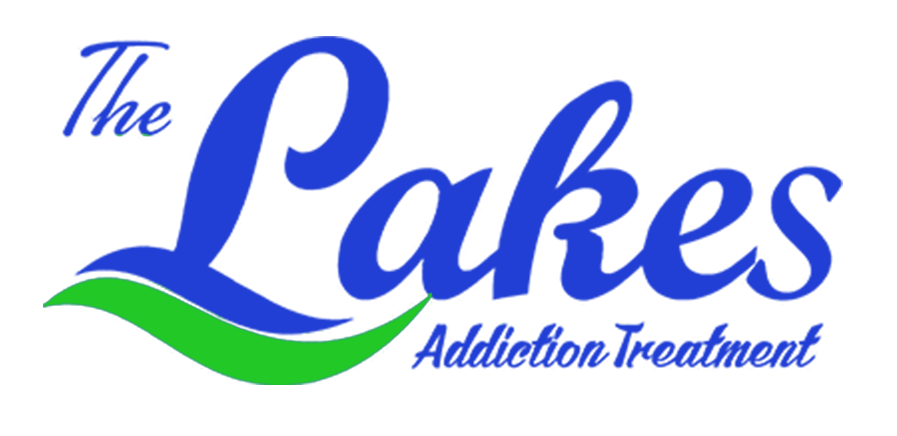Understanding the Power of Small Changes
The Compound Effect of Tiny Habits
Small, consistent actions can lead to significant long-term results, a concept often referred to as the compound effect. Imagine saving just a dollar a day; over a year, that small daily action accumulates into a substantial amount. The same principle applies to personal habits. When you commit to tiny, positive changes, they build upon each other, creating a ripple effect that can transform various aspects of your life. Behavioral science supports this, showing that habits formed through small, repetitive actions are more likely to stick. The brain’s reward system gets activated with each small win, reinforcing the behavior and making it easier to continue.
Psychologically, small changes are less intimidating and more manageable, reducing the likelihood of feeling overwhelmed. This is crucial because the brain often resists significant changes due to fear of failure or discomfort. By focusing on tiny habits, you can bypass this resistance and gradually build momentum. For example, instead of committing to an hour-long workout, start with five minutes of stretching. Over time, as this becomes a routine, you can incrementally increase the duration and intensity, making the process feel natural and sustainable.
Micro-Goals: Setting and Achieving Them
Micro-goals are bite-sized, achievable objectives that serve as stepping stones toward larger aspirations. They are essential in personal development because they make the path to success clearer and more attainable. Setting micro-goals involves breaking down a larger goal into smaller, more manageable tasks. For instance, if your goal is to write a book, a micro-goal could be writing 200 words a day. This approach not only makes the task less daunting but also provides regular opportunities for success, which boosts motivation and confidence.
Tracking progress on micro-goals is equally important. Use tools like journals, apps, or simple checklists to monitor your achievements. This not only helps in keeping you accountable but also provides a visual representation of your progress, which can be incredibly motivating. Celebrate these small victories to reinforce the positive behavior. Over time, these micro-goals accumulate, leading to significant achievements without the stress and pressure of tackling a massive goal all at once.
Incremental Progress and Motivation
Small wins can significantly boost motivation and self-confidence. Each time you achieve a minor goal, it creates a sense of accomplishment that propels you forward. This is known as the “progress principle,” which states that people feel more motivated when they see evidence of progress, no matter how small. These incremental successes build a positive feedback loop, encouraging you to continue making improvements. For example, if you aim to get fit, noticing that you can run a bit longer each week can be incredibly motivating.
Maintaining momentum is crucial for long-term success. To avoid burnout, it’s essential to pace yourself and recognize when you need a break. Strategies like setting realistic expectations, rewarding yourself for small achievements, and periodically reviewing your goals can help maintain your enthusiasm. Additionally, surrounding yourself with supportive individuals or communities can provide the encouragement and accountability needed to stay on track. Remember, the journey of personal improvement is a marathon, not a sprint, and incremental progress is the key to sustained motivation.
Areas for Personal Improvement
Physical Health and Fitness
Small changes in diet and exercise routines can have a profound impact on your physical health. Instead of overhauling your entire diet, start by making one healthy substitution at a time, such as replacing sugary drinks with water or adding a serving of vegetables to each meal. These minor adjustments are easier to maintain and can lead to significant health benefits over time. Similarly, incorporating short bursts of physical activity into your daily routine, like taking the stairs instead of the elevator or going for a 10-minute walk during lunch breaks, can gradually improve your fitness levels.
Easy-to-implement fitness habits are often the most sustainable. For instance, setting a goal to walk 10,000 steps a day can be a simple yet effective way to increase your physical activity. You can also try incorporating bodyweight exercises like squats or push-ups into your daily routine, which require no equipment and can be done anywhere. The key is to find activities that you enjoy and can easily fit into your schedule. Over time, these small changes can lead to improved cardiovascular health, increased energy levels, and better overall well-being.
Mental and Emotional Well-Being
Simple mindfulness practices can have a significant impact on your mental health. Techniques such as deep breathing exercises, meditation, or even just taking a few moments to be present can help reduce stress and improve emotional well-being. Mindfulness encourages you to focus on the present moment, which can alleviate anxiety and promote a sense of calm. These practices are easy to incorporate into your daily routine and can be as brief as five minutes, making them accessible even for those with busy schedules.
Gratitude journaling and positive affirmations are other effective strategies for enhancing mental and emotional well-being. Writing down things you are grateful for each day can shift your focus from negative to positive aspects of your life, fostering a more optimistic outlook. Positive affirmations, on the other hand, involve repeating encouraging statements to yourself, which can boost self-esteem and confidence. Both practices are simple yet powerful tools for cultivating a positive mindset and improving overall mental health.
Professional and Career Development
Enhancing your skills and knowledge doesn’t always require significant time or financial investment. Small actions, like reading industry-related articles, listening to podcasts, or taking short online courses, can accumulate over time and lead to substantial professional growth. These activities can easily fit into your daily routine, such as during your commute or lunch break, making continuous learning more manageable. By consistently seeking out new information and skills, you can stay current in your field and improve your career prospects.
Networking and building professional relationships are also crucial for career development. Simple actions like attending industry events, joining professional groups, or even connecting with colleagues on social media can open up new opportunities and provide valuable insights. Building a strong professional network can lead to mentorship opportunities, job referrals, and collaborations that can significantly impact your career trajectory. Remember, small, consistent efforts in networking can lead to meaningful professional relationships and career advancements over time.
Practical Tips for Implementing Small Improvements
Time Management and Productivity
Effective time management is key to implementing small improvements in your life. Breaking tasks into smaller, manageable steps can make even the most daunting projects feel achievable. For instance, if you’re working on a large report, break it down into sections and tackle one section at a time. This approach not only makes the task more manageable but also provides a sense of accomplishment as you complete each part. Additionally, prioritizing tasks based on their importance and urgency can help you focus on what truly matters.
Tools and techniques like the Pomodoro Technique and time blocking can enhance productivity. The Pomodoro Technique involves working for a set period, usually 25 minutes, followed by a short break. This method can help maintain focus and prevent burnout. Time blocking, on the other hand, involves scheduling specific blocks of time for different tasks or activities. This can help you allocate time more effectively and ensure that you dedicate sufficient time to important tasks. Both techniques can help you make the most of your time and stay on track with your goals.
Building and Maintaining New Habits
Understanding the habit loop (cue, routine, reward) is essential for building and maintaining new habits. The cue triggers the habit, the routine is the behavior itself, and the reward reinforces the behavior. By identifying and leveraging these elements, you can create new habits more effectively. For example, if you want to start exercising in the morning, set out your workout clothes the night before (cue), follow a specific exercise routine (routine), and reward yourself with a healthy breakfast (reward). This structure makes it easier to establish and maintain new habits.
Consistency is crucial for habit formation. It’s important to stick with your new habits, even when motivation wanes. Overcoming common obstacles, such as lack of time or energy, requires planning and perseverance. Strategies like setting reminders, tracking your progress, and enlisting the support of friends or family can help you stay consistent. Remember, building new habits takes time, and it’s normal to encounter setbacks. The key is to stay committed and keep moving forward, even if progress is slow.
Leveraging Technology for Personal Growth
Technology can be a powerful ally in your personal growth journey. There are numerous apps and tools available that can assist in tracking and maintaining personal improvements. For instance, habit-tracking apps can help you monitor your progress and stay accountable. Fitness apps can provide workout routines and track your physical activity, while meditation apps can guide you through mindfulness practices. These tools can make it easier to implement and sustain small changes in your life.
Online communities and support groups can also play a significant role in personal growth. Joining forums, social media groups, or online courses can provide a sense of community and accountability. These platforms allow you to connect with like-minded individuals, share experiences, and seek advice. The support and encouragement from these communities can be invaluable in maintaining motivation and overcoming challenges. Leveraging technology in these ways can enhance your personal growth efforts and help you achieve your goals more effectively.
Measuring and Evaluating Progress
Setting Benchmarks and Milestones
Setting realistic benchmarks and milestones is crucial for measuring personal growth. Benchmarks are specific, measurable targets that you aim to achieve within a certain timeframe, while milestones are significant achievements along the way. For example, if your goal is to run a marathon, a benchmark could be running a certain distance each week, and a milestone could be completing a half-marathon. These markers provide a clear path to your ultimate goal and help you stay focused and motivated.
Regular self-assessment and reflection are essential for evaluating your progress. Take time to review your achievements and identify areas for improvement. This can involve journaling, conducting self-reviews, or seeking feedback from others. Reflecting on your progress helps you understand what is working and what needs adjustment. It also provides an opportunity to celebrate your successes and learn from any setbacks. By regularly assessing your progress, you can stay on track and make informed decisions about your personal growth journey.
Tracking Progress with Journals and Logs
Journals and logs are effective tools for tracking personal improvements. Different types of journals, such as gratitude journals, fitness logs, or goal-setting journals, can help you monitor various aspects of your growth. For instance, a fitness log can track your workouts, diet, and physical progress, while a gratitude journal can help you focus on positive experiences and cultivate a positive mindset. These tools provide a tangible record of your efforts and achievements, making it easier to see your progress over time.
Visual tracking methods, like charts and graphs, can also be beneficial. These methods provide a clear, visual representation of your progress, which can be highly motivating. For example, a graph showing your weight loss over time or a chart tracking your daily habits can provide a visual reminder of your achievements and encourage you to keep going. Visual tracking methods can make your progress more tangible and help you stay motivated and focused on your goals.
Adjusting Strategies Based on Feedback
Using feedback to refine and improve your personal development strategies is essential for continuous growth. Feedback can come from various sources, such as self-assessment, input from others, or performance metrics. By analyzing this feedback, you can identify what is working well and what needs adjustment. For example, if you notice that a particular exercise routine is not yielding the desired results, you can modify it based on feedback from your fitness app or trainer.
Being flexible and adaptable in your approach is crucial for long-term success. Personal growth is not a linear process, and you may encounter obstacles or setbacks along the way. It’s important to remain open to change and willing to adjust your strategies as needed. This may involve trying new techniques, seeking additional resources, or reevaluating your goals. By staying adaptable and responsive to feedback, you can continuously improve and achieve your personal growth objectives.
Real-Life Examples and Success Stories
Personal Testimonials
Personal testimonials can be incredibly inspiring and motivating. Hearing stories of individuals who have achieved significant results through small improvements can provide valuable insights and encouragement. For example, someone who lost weight by making small dietary changes and incorporating short daily walks can serve as a powerful example of how minor adjustments can lead to substantial outcomes. These stories highlight the specific actions taken and the positive impact on their lives, demonstrating that small improvements can indeed make a huge difference.
Sharing personal testimonials also creates a sense of relatability and connection. When you see others who have faced similar challenges and succeeded, it reinforces the belief that you can achieve your goals as well. These stories can provide practical tips and strategies that you can apply to your own life. By learning from the experiences of others, you can gain valuable insights and inspiration for your personal growth journey.
Expert Insights and Advice
Including quotes and advice from personal development experts and psychologists can add credibility and depth to your understanding of small improvements. Experts can provide evidence-based insights and recommendations that can guide your efforts. For instance, a psychologist might explain the science behind habit formation and offer practical tips for building new habits. These expert insights can help you navigate common challenges and develop effective strategies for personal growth.
Experts can also provide a broader perspective on personal development. They can share research findings, case studies, and best practices that can inform your approach. For example, an expert might discuss the benefits of mindfulness practices for mental health or the importance of setting micro-goals for achieving long-term success. By incorporating expert advice, you can enhance your knowledge and make more informed decisions about your personal growth journey.
Community Support and Accountability
Community support and accountability partners can play a crucial role in achieving personal growth. Being part of a supportive community provides a sense of belonging and encouragement. Whether it’s a fitness group, a professional network, or an online forum, these communities offer a platform to share experiences, seek advice, and celebrate successes. The collective wisdom and support of a community can help you stay motivated and overcome challenges.
Accountability partners can also be highly effective in maintaining progress. Having someone to check in with regularly can provide the motivation and accountability needed to stay on track. For example, a workout buddy can help you stay committed to your fitness goals, while a study partner can keep you focused on your learning objectives. By leveraging community support and accountability, you can enhance your personal growth efforts and achieve your goals more effectively.
The Lakes Treatment Center Wants to Help You Improve
At The Lakes Treatment Center, we understand the power of small personal improvements and their impact on overall well-being. Our dedicated team of professionals is here to support you on your journey to better health and personal growth. Whether you’re looking to improve your physical health, mental well-being, or professional development, we offer a range of services tailored to your needs. Contact us today to learn more about how we can help you achieve your goals and make meaningful, lasting changes in your life. Together, we can create a brighter, healthier future.
CS content tokens The Lakes Treatment Center or (209) 309-3573








